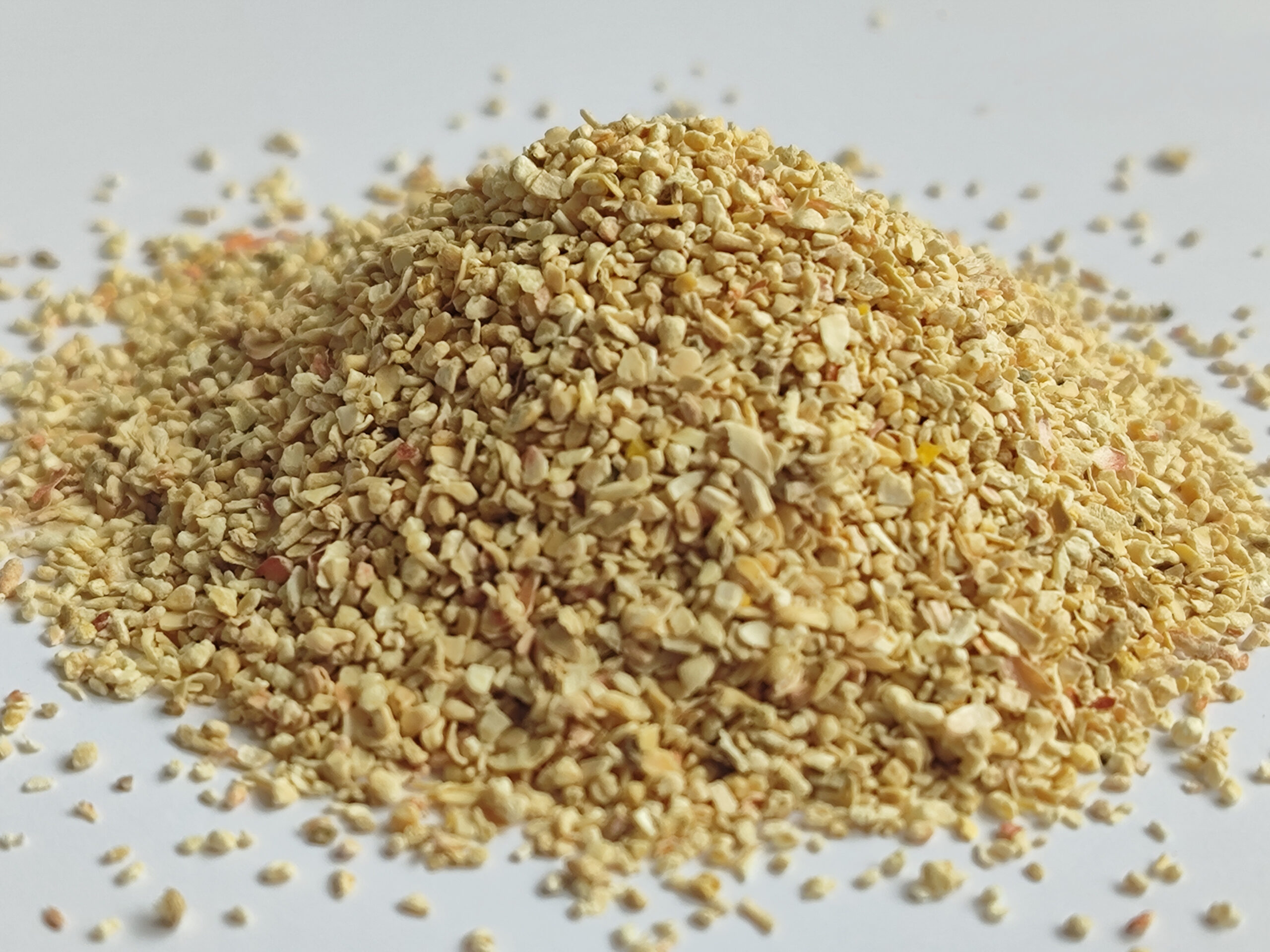What are the advantages of corncob in glasses polishing?
The advantages of corncob in glasses polishing mainly include the following points:
Good polishing effect:
Corncob abrasives can effectively remove the oxide layer and dirt on the surface of glasses lenses and frames, and improve the finish. After polishing, the surface of the glasses is bright and free of water marks, achieving a mirror-like effect.
Strong adaptability:
Corncob particles are irregular in shape and have a variety of edges and corners, which can fully reach the corners, gaps, pits and other difficult-to-reach parts of the glasses, thereby achieving comprehensive polishing.
Strong water absorption:
Corncob has a strong water absorption capacity, which can quickly remove moisture from the surface of the glasses during polishing, reduce drying time, and wipe off minor scratches and water marks on the surface.
Environmental protection characteristics:
As a natural material, corncob is non-toxic and pollution-free, which meets the environmental protection requirements of the modern glasses manufacturing industry, and its use will not burden the environment.
Economical:
The raw materials of corncob are widely available and low-cost. Compared with other abrasives, its economical nature makes it more attractive in large-scale production.
Compatibility with other materials:
Corn cobs can be mixed with ointment polishing materials to enhance the polishing effect, which is suitable for glasses with higher requirements for the roughness and brightness of the product surface.
High processing efficiency:
The specially treated corn cob abrasive has a high polishing efficiency and can be polished in a short time, which significantly shortens the processing time compared with traditional abrasives.
In summary, corn cobs show excellent performance in glasses polishing, providing an environmentally friendly and efficient solution for the glasses manufacturing industry.

What are the specific applications of corn cobs in the feed industry?
Feed additives:
Corn cobs can be used as raw materials for animal feed. After being crushed, they are in powder form and used as animal rations. Its nutrients include crude protein, crude fat and crude fiber, which can provide animals with necessary nutrition.
Nutritional carrier:
As a carrier of feed, corn cobs can effectively carry various additives, such as vitamins, amino acids, minerals, etc., to improve the overall nutritional value and palatability of feed.
Premix production:
Corn cobs can be used to produce various animal premixes, including methionine, lysine, betaine, etc. These additives help to increase the growth rate and feed conversion rate of animals.
Veterinary drug carriers:
Corn cobs are used to produce veterinary drugs and their additives because they have good shelf life and fluidity, can stably provide drug ingredients, and improve the effectiveness of veterinary drugs.
Improving intestinal health:
Corn cobs are rich in cellulose, which helps promote the health of the animal’s digestive system, improve intestinal function, and prevent constipation and other digestive problems.
Economic benefits:
Due to the low cost and wide source of corn cobs, as a feed raw material, it can effectively reduce breeding costs and improve economic benefits.
Environmentally friendly:
Corn cobs are a renewable resource. Their use helps reduce agricultural waste while providing nutrition for animals, which meets the requirements of sustainable development.
Through these applications, corn cobs in the feed industry not only improve the nutritional value of feed, but also promote the recycling of resources, providing important support for the development of the breeding industry.
What are the specific applications of corn cobs in bio-sugar production?
Production of xylose:
Corn cobs are rich in pentosan and cellulose, and xylose can be extracted after hydrolysis. Xylose is an important pentose and is widely used in food, medicine and chemical industries.
Preparation of xylitol:
Xylose can be converted into xylitol after hydrogenation, which is a low-calorie sweetener commonly used in food and beverages. Corn cobs, as raw materials, can efficiently produce xylitol through the process of hydrolysis and hydrogenation, which has high economic value.
Continuous hydrolysis process:
During the production process, corn cobs can be processed by continuous hydrolysis, which increases the yield and purity of xylose and xylitol. By using appropriate catalysts (such as hydrochloric acid or sulfuric acid) and controlling the hydrolysis temperature, high-concentration xylose liquid can be effectively extracted.
Ion exchange and decolorization treatment:
The xylose liquid produced after hydrolysis needs to be decolorized by ion exchange resin to remove heavy metals and acids, and by large-pore adsorption resin to improve the purity of the final product. This process ensures that xylitol reaches higher quality standards and is suitable for food applications.
Resource Utilization and Environmental Protection:
As agricultural waste, corn cobs achieve effective resource utilization through the bio-sugar process, which helps reduce environmental pollution and provides a new growth point for the agricultural economy.
Through these applications, corn cobs are not only transformed into high value-added products, but also promote the development of sustainable development and green economy.
